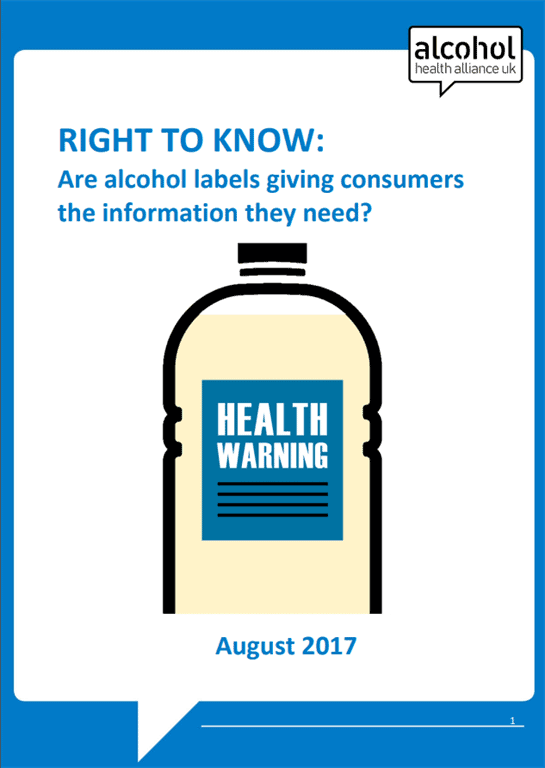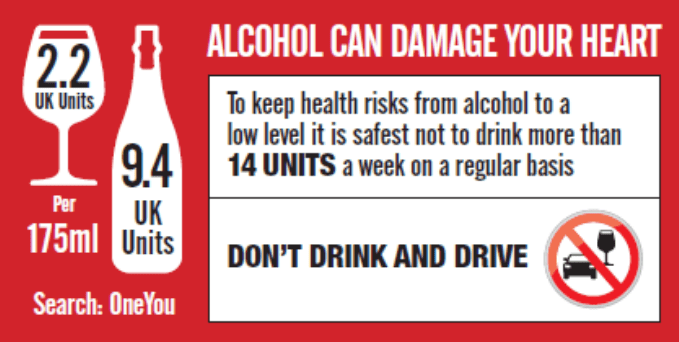
Alcohol Health Alliance UK ‘Right to Know’ report |
Hardly any alcohol brands provide accurate information about the low-risk alcohol consumption guidelines, 15 months after they were first introduced.
This is the revelation of a new Alcohol Health Alliance (AHA) UK report, ‘Right to Know: are alcohol labels giving consumers the information they need?’, which involved researchers examining the product labelling of alcohol brands’ beverages in supermarkets and off-licences across England, Wales and Scotland.
A total of 315 product labels across 27 locations were reviewed to check whether they included the following recommendations, as announced by the UK’s chief medical officers (CMO) in January 2016:
- Advice to stay within the low-risk weekly guideline of 14 units (for both men and women)
- Advice to spread out drinking across the week
- Health warnings of specific conditions like cancer, heart disease or liver disease
- Advice to have days without having a drink
- Advice that it is safest not to drink when pregnant or trying to become pregnant.
The results showed that only one label out of all 315 informed consumers of the low-risk weekly guideline of 14 units. More labels (seven) carried the Republic of Ireland guideline than the UK guideline.
Where products did refer to unit limits in the UK, the guidelines were out-of-date. Health warnings of specific illnesses or diseases – notably the increased risk of liver disease and cardiovascular disease from heavy drinking, and the increased risk of contracting at least seven different types of cancer from any level of drinking – were absent from the labelling too. No products relayed the CMOs’ advice to spread their drinking across the week, or have drink-free days. However, nearly all products included a pregnancy warning.
The AHA report concluded its research shows “that alcohol industry self-regulation of labelling has failed, and that it is time for a regime of mandatory labelling of products to ensure they carry the UK guidelines and provide sufficient warning of the health harms linked with alcohol” (see example below). This approach is supported by the public; AHA polling has found that 86% of people in the UK support mandatory product labelling for alcoholic beverages.

Commenting on the report, AHA chair Professor Sir Ian Gilmore said:
“There is something seriously wrong with the system when consumers in the UK are more likely to buy a produce containing the Irish drinking guidelines rather than the current UK ones.
“Self-regulation has failed. Instead of alcohol producers deciding what to include on labels, the government should now require all labels to contain the latest guidelines and information on the health conditions linked with alcohol.
“Alcohol is linked with over 200 diseases and injury conditions, including cancer, heart disease and liver disease, yet awareness of these links is currently very low.We know, for example, that only 1 in 10 people are aware of the link between alcohol and cancer.
“The public have the right to know about the health impacts of alcohol, so that they are empowered to make informed choices about their drinking.”
